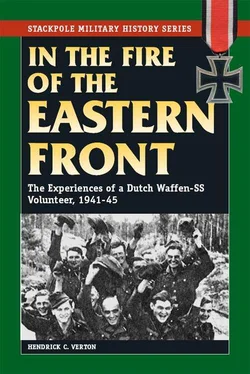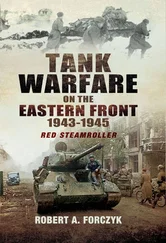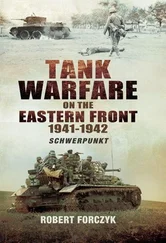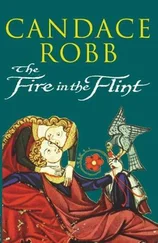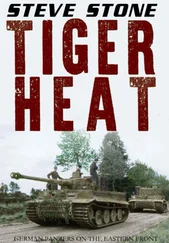Following the typical spirit of today’s political atmosphere, they now vehemently deny that they gave their blessing then, in fact they now try to convince us that they rejected National Socialism. It was definitely not as they state. To quote, “It is true that there were exceptions, but in the majority, many influential men of the church, or circles of both confessions, definitely supported the Third Reich. Dr. Joseph Goebbels, Minister for Propaganda, distributed worldwide, every printed declaration of support appearing in church publications.” (from Nicolaus von Preradovich and Joseph Stingl’s Gott segne den Führer).
Neutral States also supported Germany’s ‘just war’ alongside the church, such as Turkey, who put it in ‘black and white’ in a memo which it sent to the Ministry of Foreign Affairs, on 22 June, shortly before a German/Turkish Alliance had been formed. There were groups in Britain and America too who welcomed and encouraged the bravery and audacity of Germany in tackling Stalin.
The governments in London and Washington however saw things differently. Due to the pressure of the situation, Britain agreed to an alliance with Stalin, not with foresight, for after the war Churchill was to say, “we slaughtered the wrong swine”. Stalin received gigantic amounts of war-material from the western Allies that were despatched over the Persian-Gulf and the polar sea routes. From reports from the United States War Ministry, Stalin received during WWII enough war material to equip 200 divisions, including 400,000 lorries and 1,500 planes, for his Red Army. The very alliance between Capitalism and Communism was a very unnatural one. It ended, after the war, in a ‘cold war’ that lasted decades.
In deciding to join the fight against Communism and with their enthusiasm for a new Europe, thousands of young foreign ‘volunteers’ enlisted for the Waffen SS in 1941. 135,000 men all-in-all, from the western European lands in the four years of the Russian campaign. They were made up of 55,000 Dutch, the largest portion, followed by 23,000 Flemish and 20,000 French and as many Walloons. Among those volunteers, were the sons of the Norwegian Nobel prize-winner for Literature, Knut Hamsum and Iceland’s President Sveinn Björnson. By the end of the war, 1,123,700 non-German nationals had served in the German Wehrmacht (quoted from Hans W-Neulen An Deutscher Seite), statistics that are not generally known, never broadcast, and are even suppressed.
The thought of a new crusade fascinated not only National Socialists but also the conservative and ultra-clerical in the occupied lands. They marched with the enemy in their homelands and in doing so were bound closer together with them, than with the anti-Christians in the Soviet Union.
CHAPTER 10
On the Eastern Front
Autumn unfolded over Klagenfurt as the successful attack on Russia was coming to an end. The hay was dried in the summer sun and stacked in the hay-barns, and the summer having been a good one offered a very good harvest. The colours of the flowers paled and ‘Mother Nature’ prepared herself for a winter sleep. However, sleep and leisure were begrudged us soldiers of the Lendorf Battalion. For us, life meant training and drilling, and drilling and training, repeating everything that we had already learned. It was cemented with visits from officers and the non-commissioned, who were posted away from the Russian front from the Wiking Division. We listened intently and in wonder to the decorated soldiers as they related to us their experiences and encounters against the Soviets. Soldiers were constantly posted to the Division in Russia, including those who were in Munich-Freimann before us and who had ended their training in Klagenfurt.
The send-off of the graduates of war, with their thirst for action, was indeed a wet one, with ‘elbow exercise’ in our canteen, as we wished them “all the best”, including my brother Evert. It was not a sad send-off. On the contrary, we made it a celebration in festive mood, giving vent to our high spirits. We were really jealous, and desperate to be included in the Victory Parade to take place on Red Square in Moscow!
The volunteers from the lands of Europe had become not only companions, but very good friends. A friend of mine, also Dutch, was Robby Reilingh from Groningen. I looked upon this twenty-year-old student almost as a brother, our friendship beginning in the first few days in Sennheim. All-in-all we were a happy bunch of wide-awake young men, who could and did laugh a lot about ourselves, as much as our daily lives allowed. We were always ready for a joke.
We didn’t usually take it too seriously either when something went awry, or we overstretched ourselves. Nor were we nasty with one another, or ridiculed each other when one of us found ourselves in an embarrassing situation. We laughed it off, in a friendly manner mostly, as in one particular exercise copied from the Fallschirmjäger divisions. In rows they fell forwards on to the grass, necessary exercise for their parachute jumps, with their feet together and hands held behind their backs. We did too, or at least we tried. This sporty exercise was not easy and we fell around laughing. It was not everyone’s cup of tea. It cost us more than a little pluck and/or a dislocated joint or two.
Another exercise produced a far more serious and macabre scorn in us. One of our chums turned out to be a ‘walking disaster’ when practising with chemical agents. We had practised this exercise time and time again, in the open air. The time came however, for us to practice changing the filter on our gas-masks in an air-tight room. We felt more than a little apprehension. Nervous tension caused our chum to fumble with the screw when changing the filter and in that moment he forgot to hold his breath! Our nervous friend had to hastily leave the room, with streaming eyes, coughing and spluttering endlessly.
Our hour of probation eventually came. Over the summer months the Wiking Division, in stubborn fighting, had pushed the enemy back to the south of the western front. In September of 1941 they were in Dnjepr. In the hundreds of miles that lay behind them, the Division had suffered very heavy losses and needed replacements of highly-trained combat-ready men. The enemy had proved to be unexpectedly tough opponents, not to be compared with the Poles in 1939, or the French in 1940. The first wave of volunteers had already proved themselves in the field. With their front experiences, in the tank and motorised divisions under General von Kleist, they had proved that they could be relied upon. The Dutch, Danish, Norwegian and Finnish soldiers had earned themselves a reputation among the General Staff. The task of the second wave was “to hold the headway made by their predecessors”, wrote Felix Steiner. We were the second wave, the graduates of the SS surrogate battalion ‘Westland’ from Klagenfurt.
The days became shorter and frost was in the air as the first powdery snow fell on the rooftops. The roads were somewhat slippery too. Marching with our backpacks, we slipped now and again on the cobbles, as we entered the old town. In the early morning hours the battalion marched from Lendorf to Klagenfurt. The route went over the long Feldkirchener road, leading to the main railway station. As we marched we took a long, last look at the Lindworm fountain. The picture-book houses with their arcades and courtyards were imprinted on our minds. Passers-by waved to us, as company after company we entered the railway station, the last ‘native’ station for us. At the station there was a lively throng. The girlfriends and sweethearts made in Lendorf, were waiting with bouquets of autumn flowers, usual for a farewell.
They stood in sharp contrast to the parents of soldiers, who lived near enough to have made the journey of farewell to their sons before they made their way to the front. Farewell parcels, containing sweet delicacies and something warm to wear, were presented by many a helpless and weeping mother, to sons who tried to comfort them with promises that they would see one another again soon. It was a moving scene.
Читать дальше
